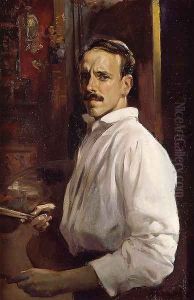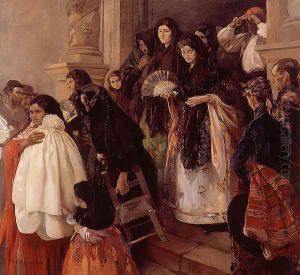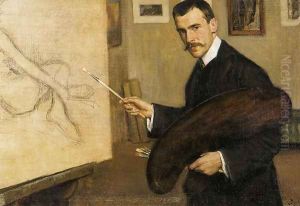Jose Benlliure Ortiz Paintings
José Benlliure Ortiz was a Spanish painter born on June 14, 1884, in Valencia, Spain. He was part of an illustrious family of artists, as the son of José Benlliure Gil and the nephew of Mariano Benlliure, both of whom were well-recognized figures in the Spanish art world. His father was a celebrated painter and his uncle a renowned sculptor, which provided a fertile artistic environment for his upbringing and development as an artist.
Benlliure Ortiz showed an early aptitude for the arts, likely influenced by the artistic milieu in which he was raised. He trained under the guidance of his father and was also exposed to the broader European art scene, which was characterized by a mix of traditional and emerging modernist tendencies. His style was rooted in the academic tradition, reflecting the influence of his father's classical approach to painting, yet it also began to show signs of the contemporary artistic currents of the early 20th century.
Despite his promising career, José Benlliure Ortiz's life was tragically cut short. He died at the young age of 32, on October 5, 1916. His early death meant that his artistic output was limited, and as a result, he did not achieve the same level of fame as his father or uncle. Nevertheless, his works are appreciated for their quality and are considered part of the cultural heritage of Spain.
Ortiz's paintings often depicted historical and religious themes, as well as landscapes and portraits. His brushwork was noted for its precision and clarity, a testament to his academic training. Although his career was brief, José Benlliure Ortiz contributed to the legacy of the Benlliure family and is remembered in the context of Spanish art history, particularly within the circle of Valencian artists of the late 19th and early 20th centuries.


